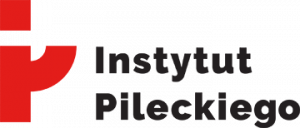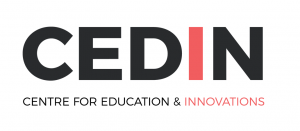Background
The Covid-19 pandemic led to unexpected school closures all across Europe, moving formal education either partially or entirely online in March 2020. This sudden shift revealed that teachers had little or no previous experience with distance learning, and were unprepared to conduct effective online teaching for their students.
In April 2020, in response to this need, EuroClio launched its Online Course on Online Teaching. It produced a total of 7 episodes developed in collaboration with international education professionals from across the EuroClio network, to cover issues from useful online tools like Canva and MindMup to assessment strategies in distance learning.
A year on, there still remains a wide gap between what students need and what teachers know how to offer with distance learning. Students grow more demotivated to learn online every day. Teachers need to be trained in effective tools and methodologies for effective digital learning, to be able to engage their learners, whose formative educational moments will be spent behind a screen for the foreseeable future. Even once teachers are able to teach face-to-face again, the legacy of the pandemic will be an increased expectation of digital readiness and resilience in the education sector, and teachers must be prepared to meet this expectation.
About the Project
This project aims to increase the digital readiness and resilience in the education sector, by increasing the knowledge and capacity of history and citizenship teachers in the Visegrad region to conduct effective online teaching with their students.
The project will deliver:
- A set of 8 Ready-to-use Online Learning Activities, to be available on Historiana.eu, on the topic of the socialist period in the Visegrad region developed by a multinational team of local history and citizenship educators with an emphasis on a cross-border perspective and the development of democratic competences in students.
- A Teachers’ Guide on Effective Online Teaching developed by online teaching experts from the region and across Europe, which will discuss and present practical strategies for: engaging students in online lessons, finding useful sources, maintaining the human connection, and the different methods and platforms available for teachers to use as part of their online teaching offer.
Our eLearning Activities
You can find our eLearning Activities on Historiana.eu, at the following direct links:
- Collectivisation in Hungary, Poland and Czechoslovakia, 1948 – 1953 (CZ, HU, PL, SK)
- People’s opinions in communist states (CZ, HU, PL, SK)
- Propaganda in the Socialist Era (CZ, HU, PL, SK)
- The Sovietization of Poland, Hungary and Czechoslovakia (CZ, HU, PL, SK)
- World Festival of Youth and Students (CZ, HU, PL, SK)
- Environmental disasters in Communist Czechoslovakia (CZ, HU, PL, SK)
- Representation of Colonised Countries in Communist Czechoslovakia (CZ, HU, PL, SK)
- Behind the scenes of the 12th World Festival of Youth and Students (CZ, HU, PL, SK)
- How did the “friendship of nations” change the cuisine in Poland and the Czech Republic? (CZ, HU, PL, SK)
- Man vs nature in the times of communism. Rivers in the Visegrad Group countries (CZ, HU, PL, SK)
The missing translations will be available soon!
Have you tried out these activities? Let us know your thoughts!!
Team Members
Project Team
- Catherine Savitsky, EuroClio
- Alice Modena, EuroClio
- Juraj Varga, Centre for Education and Innovations
- Richárd Fodor, Hungarian Historical Society Teachers’ Division
- Klara Hoskova, German School in Prague
- Jakub Manczak, Pilecki Institute
Acknowledgement
The project is co-financed by the Governments of Czechia, Hungary, Poland and Slovakia through Visegrad Grants from International Visegrad Fund (visegradfund.org). The mission of the fund is to advance ideas for sustainable regional cooperation in Central Europe.





